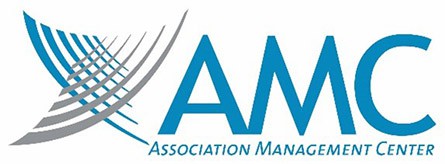For association professionals, the Certified Association Executive (CAE) credential is a mark of professional development. Earning your CAE can make a positive impact on your career path and showcase your commitment to the association profession. Several AMC executives use the knowledge they gained earning their CAE certification to guide and support our association partners.
Navigating the education landscape to earn your CAE can be challenging, but is well worth the effort. Earning this valuable industry marker helps set you apart from your colleagues and take your career to new levels. If you are considering pursuing your CAE, follow our checklist for CAE success:
✔ Track Your Credits
In order to sit for the CAE exam, you must complete 100 hours of qualifying professional development within the previous 5 years. You’ll need to do a bit of planning to meet these requirements. Make sure to keep track of your credits as you earn them. It may be helpful to develop an estimated timeline of when and where you will earn credits to ensure you reach the required 100 hours before applying for the exam.
✔ Find Easy Places to Earn Credit
Take advantage of professional development opportunities you may already be pursuing as another way to earn CAE credit. Many professional conferences, workshops, seminars, and classes sponsored by The American Society of Association Executives (ASAE) or other approved CAE providers qualify for credit. Webinars are easy places to earn credit too. If you are taking classes towards a master’s degree, many of those count. Think about all of the education you’ve completed and submit it. If it’s not usable, ASAE will let you know.
✔ Understand the Exam Structure
The CAE exam features questions that relate to the knowledge and skills association executives must possess to excel in their roles. The exam tests essential association management competencies across nine domains ranging from strategic management to membership development to public policy and government relations. One portion of the exam is devoted to each domain so it is important to have a strong base of knowledge across all nine areas.
Most of the exam questions are experience-based questions. You will need to able to apply the concepts and rationales you’ve learned, rather than just be able to pass through rote memorization.
✔ Develop a Diligent Study Routine
ASAE offers several independent CAE study tools to help you in preparation for the exam. Prep courses and study groups are offered throughout the country, some of which offer CAE credit as well. Setting up a study routine and week by week goals will help in your efforts to master knowledge across all of the exam domains. If a colleague also is preparing for the CAE exam, consider forming a study-buddy relationship to foster a spirit of assistance and accountability.
✔ Verify Testing Dates and Apply in Advance
ASAE holds CAE exams twice a year, on the first Fridays of May and December, at varying testing centers located throughout the U.S. The application deadlines fall a few months ahead of the exam so be sure to submit your application in advance.
Earning the CAE credential is a great way to open doors, advance your position, and plot your career trajectory in the association industry. Although it takes advanced planning and diligent studying to reach this career milestone, you will efforts surely will make you a better professional for your association and your members.
Be the first to know about the latest news and events from AMC. Sign up for our bimonthly emails!

